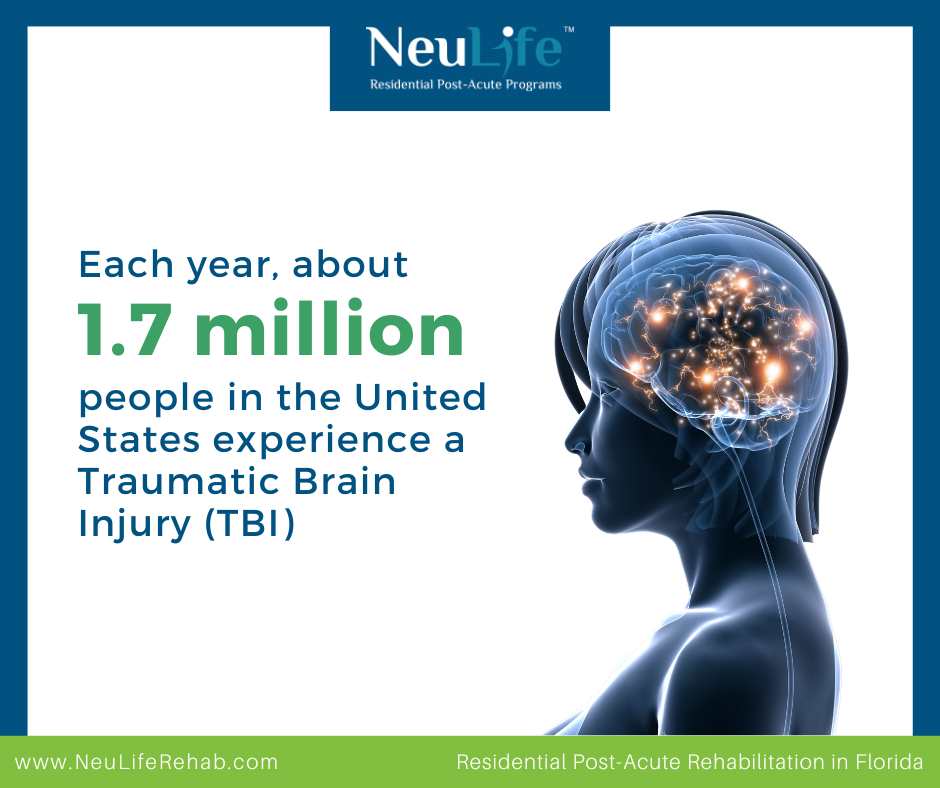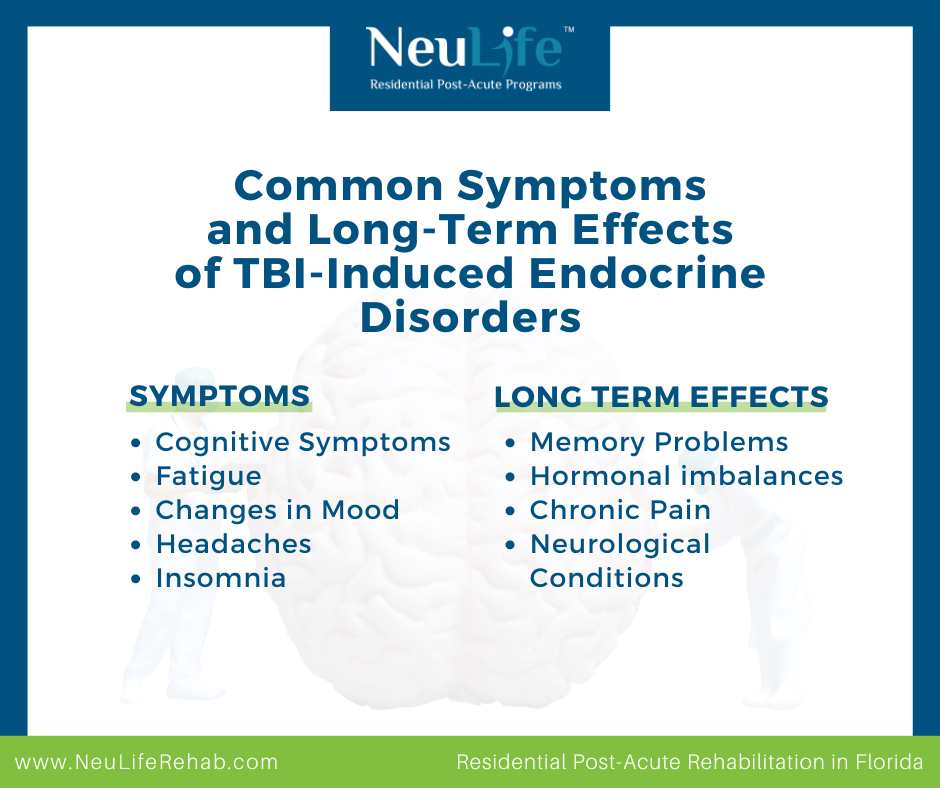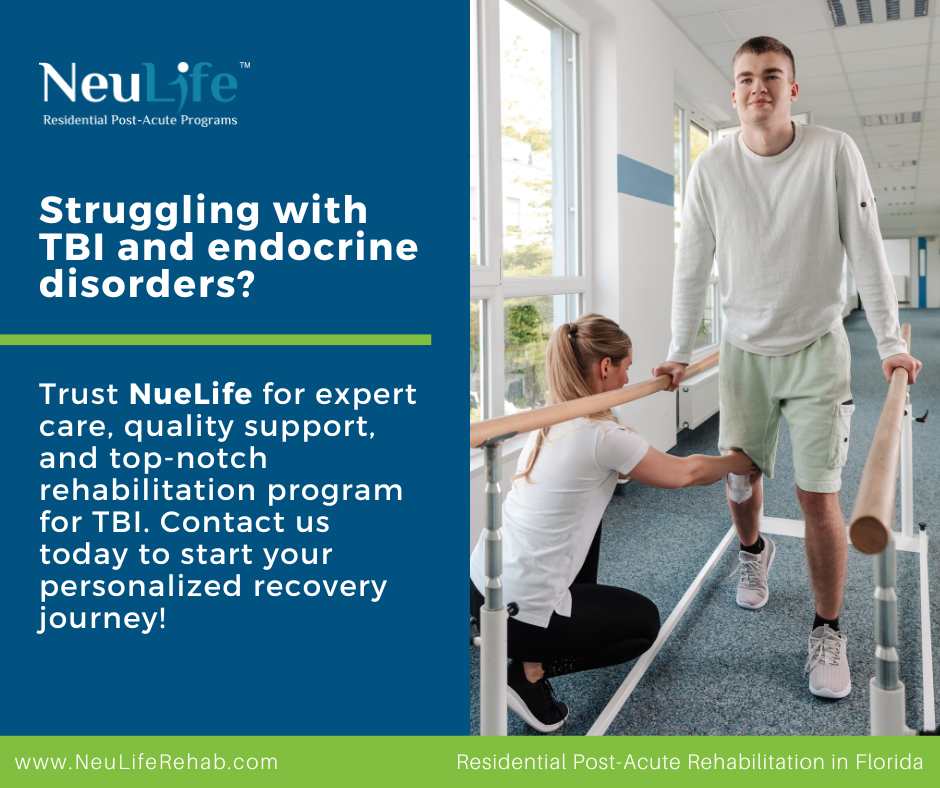Around 1.7 million people in the United States suffer from a Traumatic Brain Injury (TBI) every year, according to the Centers for Disease Control and Prevention (CDC). This type of injury occurs when a sudden external force, such as a blow to the head, causes damage to the brain. While many are aware of the physical and cognitive effects of TBI, the link between TBI and endocrine disorders is not as widely known.
Traumatic Brain Injury (TBI) is a broad term used to describe a wide range of brain injuries caused by a sudden, violent impact or jolt. These injuries can vary in severity and lead to physical, cognitive, and emotional symptoms. One lesser-known complication of TBI is the development of endocrine disorders.

First, let's understand endocrine disorders. Our body releases hormones from specialized glands called the endocrine glands, which control various bodily functions such as metabolism, growth, and reproduction. When there is a problem with the production or function of these hormones, it can lead to an endocrine disorder. Some common endocrine disorders include diabetes, thyroid disorders, and growth hormone deficiencies.
TBI can occur due to a variety of causes, including falls, motor vehicle accidents, sports injuries, and physical violence. These incidents can cause a sudden impact on the head, damaging the brain and surrounding tissues. TBI can range from mild (concussion) to severe, and the severity of the injury can impact the likelihood of developing a related endocrine disorder.
Why Is It Important to Understand the Connection between TBI and Endocrine Disorders?
Discover why understanding the connection between TBI and endocrine disorders is crucial for your health. From hormone imbalances to the impact on brain function, learn the vital link between the two and how it affects your overall well-being:
A person who has experienced TBI may not immediately show symptoms of endocrine disorders. However, regular monitoring of hormone levels can help detect any changes or imbalances early on, allowing for prompt treatment before the symptoms become severe.
TBI can cause endocrine disorders, leading to misdiagnosis and inappropriate treatment. Recognizing this connection helps doctors provide better care.
Endocrine disorders can significantly impact a person's physical and emotional well-being. By understanding the link with TBI and effectively managing the condition, individuals can experience a better quality of life and improved overall health.
Raising awareness about the connection between TBI and endocrine disorders can also help prevent these conditions. For instance, preventive measures such as wearing protective headgear during high-risk activities can reduce the chances of a TBI.
When a TBI occurs, the trauma can disrupt the normal functioning of the endocrine system, leading to a range of disorders. Some common endocrine disorders linked to TBI include:
The pituitary gland, often called the master gland of the endocrine system, regulates hormones for growth, reproduction, and body function. TBI damage is called hormonal imbalances, and symptoms include fatigue, weight gain, and mood changes.
The thyroid produces hormones for metabolism, energy, and temperature regulation. TBI affects brain-thyroid communication, causing dysfunction and symptoms such as weight gain, fatigue, and slow heart rate.
Adrenal glands make stress hormones to manage stress and maintain Blood pressure and electrolyte balance. TBI can harm them, causing fatigue, low BP, and electrolyte issues.
The pituitary gland produces growth hormones for growth and muscle/bone health. TBI can cause growth delays in children and weak bones/muscles in adults.

TBI and endocrine disorders can have severe and long-lasting effects on a person's physical and mental health. Although these conditions may seem unrelated, they often occur together and have overlapping symptoms. We will explore the common symptoms and long-term effects of TBI and endocrine disorders and how we can manage and prevent them.
Now, let's look at some common symptoms of TBI and endocrine disorders.
Now, let's dive into the long-term effects of TBI and endocrine disorders, which can have a significant impact on a person's life.
The first step in managing endocrine disorders caused by TBI is accurately diagnosing the condition. This may involve various tests to measure hormone levels and assess the functioning of the pituitary gland. Once diagnosed, the following treatments may be recommended:
The treatment of TBI and endocrine disorders can be complex and may require a multi-disciplinary approach. The primary focus of treatment for TBI is to stabilize the patient and prevent further damage to the brain. This may involve surgery, medication, and rehabilitation to improve cognitive, physical, and emotional function. Once the patient has stabilized, the focus shifts to managing potential endocrine disorders.
If you or someone you know has experienced a TBI, it is essential to be aware of the potential risk of developing endocrine disorders. Here are some tips for managing these conditions:
The connection between TBI and endocrine disorders is undeniable and needs to be understood by both patients and healthcare providers. By recognizing and managing the potential risk of developing endocrine disorders after a TBI, individuals can have better control over their health and lead a fulfilling life.
NeuLife Residential Post-Acute Program provides comprehensive care for individuals with TBI and related complications. Our team of healthcare professionals collaborates to develop individualized treatment plans for neuro rehabilitation, which often include:
NeuLife aims to improve overall health and quality of life for individuals with TBI by providing a holistic approach to recovery. We offer a residential and post acute rehabilitation program designed to help people with brain injuries reintegrate into their communities. Our services are available to patients in Florida and the Southeastern United States. As a top choice for traumatic brain injury rehabilitation care, we welcome anyone affected by such injuries.
If you have questions about traumatic brain injury rehabilitation or any other concerns related to brain trauma, please give us a call to book an appointment today. Additionally, you're invited to schedule a tour of our long-term care facility for traumatic brain injury.
Contact NeuLife today to learn more about our services. Remember, there is always time to start the journey towards recovery.

***
The material on this site is for informational purposes only and DOES NOT CONSTITUTE THE PROVIDING OF MEDICAL ADVICE, and is not intended to be a substitute for independent professional medical judgment, advice, diagnosis, or treatment. Always seek the advice of your physician or other qualified healthcare provider with any questions or concerns you may have regarding your health.

We know that choosing the next step in your recovery from a catastrophic illness or injury is complex. Together, we can help you take the next step.
Contact us with any questions today.